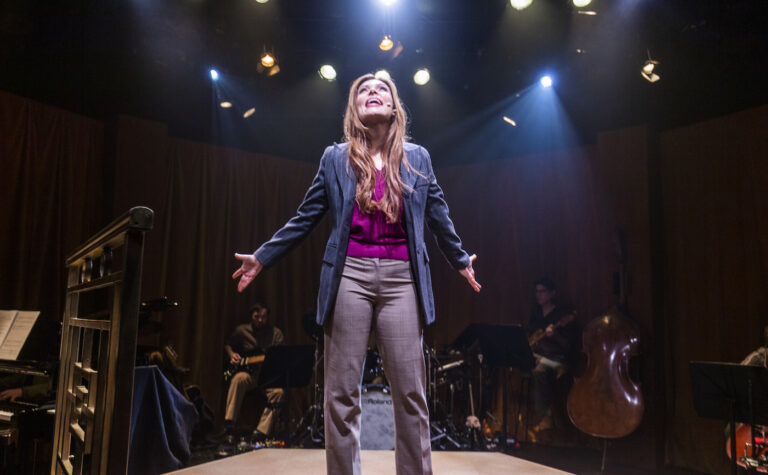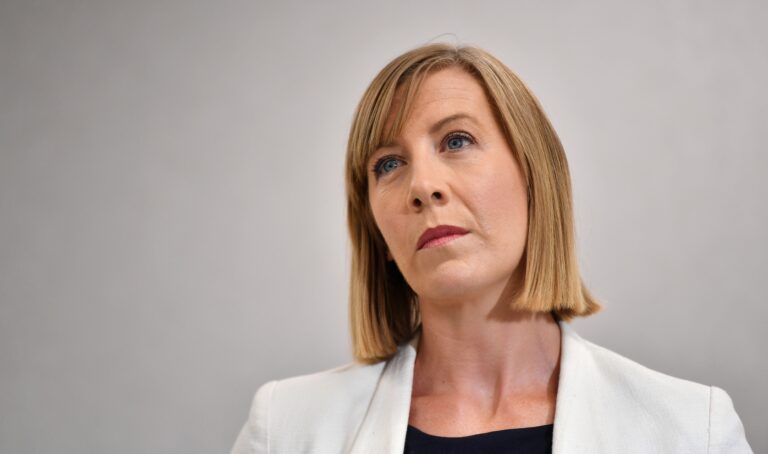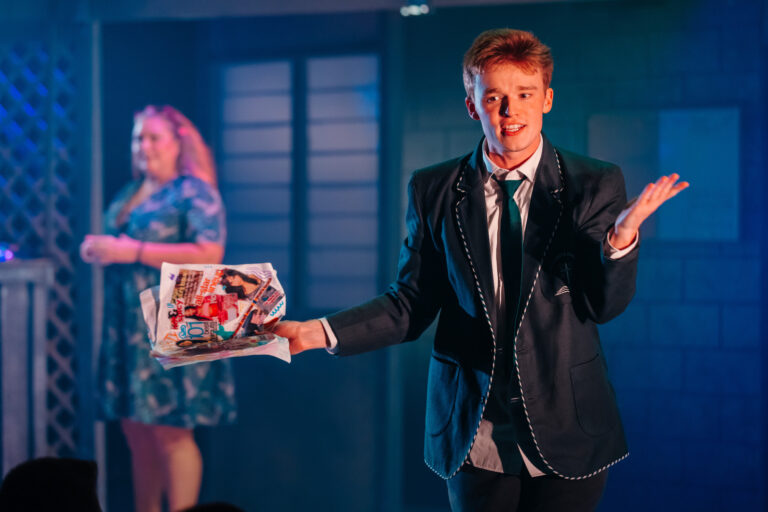
Refugees hung out to dry at Archibald Prize

BY SORAYA PEREZ MOHAMMED
An Iranian artist currently seeking asylum in Sydney has had her work exhibited in the Art Gallery of NSW last Friday, to challenge to the political discourse about people seeking asylum.
Atefeh Hekmat was the lead artist on the Archibald Prize entry- a collaboration with 27 other refugees to create a portrait of Guo Jian, former refugee, now an internationally renowned Australian Artist.
Ms Hekmat said: “I did this project because it’s an opportunity to appreciate all those who have welcomed me and seen the contribution I can make, both as an artist and a friend.”
“This portrait aims to provoke the viewer into considering their own positive interactions and relationships” she added.
Using the theme of ‘Connection’, the portrait of Guo Jian is flanked by 27 tiles, each carrying personal stories of connection contributed by people who are seeking asylum, volunteers and friends of the House of Welcome community.
House of Welcome CEO, Lyn Harrison said: “Many of today’s politicians purposefully choose language that dehumanises people seeking Australia’s protection. It is heavily focused on removing the human connection that exists between people.”
“The Archibald Prize, presented House of Welcome with the opportunity to remind people of the personal connection they have made with friends, relatives, classmates and colleagues who have fled their country of origin. We want people to reflect on how that connection has positively touched their lives and then choose to take positive action to ensure Australia provides a welcoming home to those who need our protection.”
The federal government’s crackdown on immigration has created more obstacles for immigrants and refugees hoping to make Australia home with proposed changes adding to the requirements for citizenship, being voted on by Parliament by the end of the year.
Most of these refugees are in ‘limbo’- waiting for their Temporary protection visas to be processed, but with limited english skills and no access to legal help, many are unable to complete their applications.
Ian Rintoul, spokesperson for the Refugee Action Coalition explained the Government has given a deadline of October 1st for Asylum Seekers to make their applications for protection without providing any legal support.
He said: “A very big problem [many refugees have] is finding people who can support them because it’s a very complicated document. It has to be written in english, all the documents and supporting evidence have to be provided in english and there is no funding for that, so that’s caused a very big problem for the community groups who do assist.”
In addition, Mr Rintoul said that the conditions of Bridging visas meant most people had no way of getting an income.
“They’re on Bridging visas without the right to work so they have big difficulty in supporting themselves. They rely on charity, they rely on friends…family if there is any family who can support them, so that’s extremely difficult,” he added.
Due to new regulations people who are granted refugee status under existing policy now only receive TPVs preventing them from being eligible for citizenship or getting an education.
Ms Hekmat, a qualified art teacher in Iran once operated her own art gallery holding exhibitions with the support of art teachers and friends. There are hundreds of refugees who similarly hold qualifications and are willing to work but are prevented from doing so while they wait for their protection visas.
Mr Rintoul believes the rhetoric of Immigration Minister Peter Dutton is damaging to the struggle many refugees face. He said: “The Minister makes a lot of disparaging comments about refugees and migrants. He’s called people illiterate and innumerate, suggested that previous groups of immigrants who have come to Australia have been responsible for domestic terrorism.”
“They [the Government] use immigration issues to try and portray themselves as strong on national security issues even though there is no connection between either refugees or immigration and national security… they make that kind of connection because they think they can get some electoral advantage out of it.”









